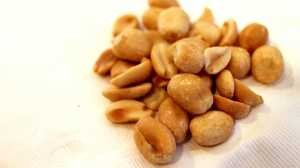Allergies, Author Interviews, Pediatrics / 10.05.2023
NEJM: Viaskin Patch Shows Promising Results for Toddlers with Peanut Allergy
MedicalResearch.com Interview with:
Matthew Greenhawt, MD, MBA, MSc
Professor of Pediatrics
Section of Allergy and Immunology
Director, Food Challenge and Research Unit
Children’s Hospital Colorado
University of Colorado School of Medicine
Anschutz Medical Campus
Aurora, CO 80045
MedicalResearch.com: What is the background for this study? Is the incidence of peanut allergy in toddlers stabilizing with the earlier introduction of peanuts?
Response: There exists an urgent unmet medical need for infants and toddlers living with peanut allergy. Peanut allergy affects approximately 2% of U.S. children and has been a growing public health problem over the past 20 years. In fact, the number of kids affected by peanut allergy has tripled in that time span. Peanut allergy is not likely to be naturally outgrown, and reactions can be severe.
However, there is hope. There is growing evidence that the allergic immune system is more modifiable early in life. The EPITOPE study evaluated Viaskin Peanut in children ages 1 – 3 years of age. Viaskin Peanut is an investigational epicutaneous immunotherapy (EPIT) product, which uses the skin as a route to desensitize a patient to be less reactive to peanut. This is a daily therapy, worn between the shoulders on the back, which allows for non-oral peanut desensitization, which many parents find highly appealing.
(more…)


 MedicalResearch.com: What is the background for this study?
Response: The PEOPLE study is an open-label extension of the Phase III PEPITES trial designed to evaluate the long-term safety, tolerability and efficacy of Viaskin Peanut 250 μg (DBV712). Participants who completed the 12-month study period of PEPITES were eligible to enroll in PEOPLE, which evaluates the eliciting dose (ED) after three years (Month 36) of active treatment using a double-blind, placebo-controlled food challenge (DBPCFC).
MedicalResearch.com: What is the background for this study?
Response: The PEOPLE study is an open-label extension of the Phase III PEPITES trial designed to evaluate the long-term safety, tolerability and efficacy of Viaskin Peanut 250 μg (DBV712). Participants who completed the 12-month study period of PEPITES were eligible to enroll in PEOPLE, which evaluates the eliciting dose (ED) after three years (Month 36) of active treatment using a double-blind, placebo-controlled food challenge (DBPCFC).